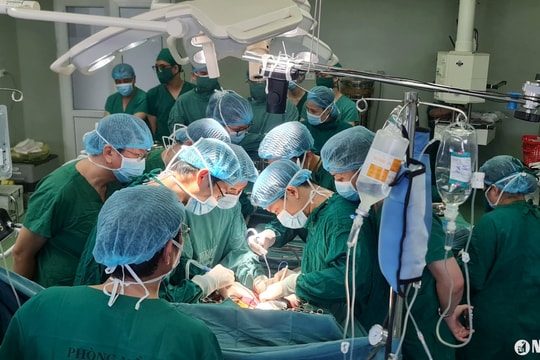Voters evaluate the question and answer session of the Provincial People's Council meeting
(Baonghean.vn) - Closely following the session of the Provincial People's Council, voters from localities expressed their opinions on the quality of the session, the content of the questions and proposed many solutions related to vocational training, job creation and output for agricultural products...
Voter Le Van Tri, Block 2, Anh Son Town:The answers to questions from industry leaders were lengthy but still lacked fundamental solutions.
 |
| Voter Le Van Tri. |
Through monitoring the 4th session of the 17th Provincial People's Council,Regarding the explanation of the Department of Labor, War Invalids and Social Affairs, I highly agree with the management method of the Provincial People's Council Standing Committee, the high awareness and responsibility of the Provincial People's Council delegates. Especially the two major issues that the Standing Committee chose to raise at the question and answer session at the meeting.
Regarding the explanation of the Department of Labor - Invalids and Social Affairs, I agree with the assessment that "Vocational training and job creation in the past have achieved many important results, but there are still many shortcomings. Current situation, causes, responsibilities and solutions in the coming time". However, the 7 solutions proposed by the Department of Labor, in my opinion, still lack the most fundamental and important solution, which is to advise and coordinate with state management agencies in this field to implement solutions to ensure the rights and obligations of workers.
For example, it is necessary to have the voice of the trade union (to support workers in implementing agreements with employers, participating in resolving issues of strikes, etc.), ensuring social insurance and health insurance policies; or coordinating with interdisciplinary inspection teams to ensure issues related to food safety in workers' meals. If this solution is implemented synchronously with the 7 industry solutions given above, it will solve the problem that workers want.
Second, regarding the explanation of the Department of Agriculture and Rural Development regarding the group of solutions on mechanisms and policies, the Department should focus on clarifying why in the past, some policies of the Central Government and the province have not reached farmers. Whose responsibility is it? And what are the upcoming solutions to effectively implement the above policies?
Another issue that voters are concerned about is that since the end of 2016, livestock products have "fallen" miserably, many farming households have sold their herds and farms but still cannot pay off bank loans. Voters are concerned about the industry's forecasting ability and hope that the agricultural sector will accompany farmers to overcome difficulties with specific solutions, including accurately forecasting market fluctuations and demand; advising the banking sector to extend and freeze debts for farm and ranch owners so that they can repay their debts and rebuild their herds. Only by doing so can the agricultural sector truly be a midwife for farmers. In general, when the four-party association fails, no one will stand up to help, only the farmers will suffer.
Voter Le Hong Thai, Tuong Duong: The limitations of vocational training have not been clearly assessed.
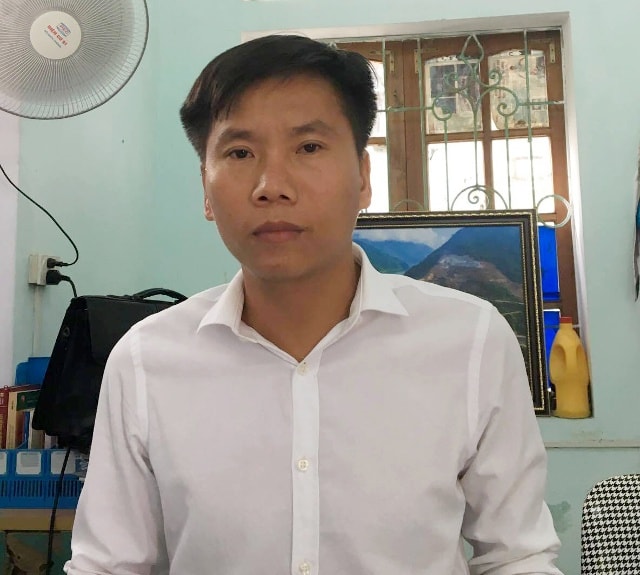 |
| Voter Le Hong Thai. |
Regarding the content of vocational training, I think the report has not fully assessed the current situation of vocational training and post-vocational training. In my opinion, it is necessary to clarify and emphasize the issue: Vocational training for workers in the past has had many limitations, not recruiting enough students, the rate of workers having jobs after working is low (almost non-existent), many occupations that students need to learn are not included in training (in mountainous areas, training in motorbike repair, tailoring, etc. is not practical). Training is only to meet the quota but not linked to social needs, training quality is low, after graduation, students are still not proficient in the profession. In addition, training is not linked to job introduction and labor export, leading to waste of state budget.
In the explanation of the Director of the Department of Labor, Invalids and Social Affairs, I do not agree with the explanation in the report: Some workers, mainly from mountainous districts, do not want to work far away but prefer to stay locally, so there are few jobs, unstable jobs, low income; some workers do not want to work at enterprises but prefer to work freely, illegally in some countries such as: Laos, China, Thailand... leading to great risks and unstable income while the number of enterprises inside and outside the province that need to recruit workers in the province is still large.
The explanation also stated: The number of workers after graduating from universities and vocational colleges who want to work in state-owned agencies but do not want to work in enterprises, factories, and industrial zones inside and outside the province. Because the district vocational training center is poor, cannot connect, cannot find specific enterprises, cannot find output for workers after vocational training. In my opinion, the assessment of the cause in the report is subjective.
I think the delegates need to clarify further: The issue of concern is not the quantity of training, but the quality of training of apprentices? Is the effectiveness sustainable? Regarding the answer to the question of the Director of the Department of Agriculture and Rural Development, I think it is necessary to analyze and clarify that the construction and replication of production models are still limited, not widespread, and not commensurate with the potential (while the investment capital and support from the State are large).
The agricultural sector needs to clarify the solution for agricultural product prices and support the consumption of products for farmers who do not guarantee prices, and whose output is even squeezed by businesses (for example: Que Phong passion fruit, Tuong Duong). In fact, the conversion of crops and livestock is slow and not suitable for regions. This is an issue that the agricultural sector needs to pay attention to in planning and orienting the conversion of crop structures for regions.
Voter Nguyen Van Ly, block 6, Ha Huy Tap ward, Vinh city:All levels and sectors need to fulfill their promises to voters.
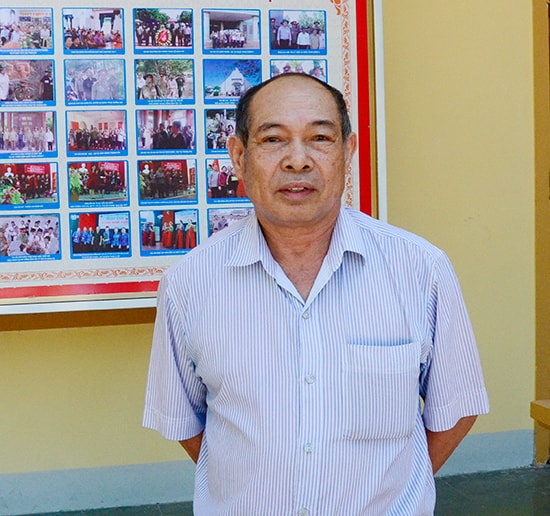 |
| Voter Nguyen Van Ly. |
Regarding the content of the questioning of the Agriculture sector, I strongly agree with the delegates asking questions to the Director of the Department of Agriculture and Rural Development about the responsibility of planning management to limit overlap between crops, output solutions for agricultural products and the responsibility of agricultural officers and civil servants in such fields?
Regarding the content of questioning the Director of the Department of Labor, Invalids and Social Affairs on the content "Vocational training and job creation in the past time have achieved many important results, however, there are still many shortcomings. Current situation, causes, responsibilities and solutions in the coming time". The delegates focused on questioning and requesting the Department of Labor, Invalids and Social Affairs to clarify the shortcomings and solutions for effective vocational training and job creation. Although the explanation and answer of the Director of the Department of Labor, Invalids and Social Affairs clearly stated the results, existing causes and solutions. However, the analysis of the causes is still general.
In reality, vocational training for rural workers is still in the form of "training whatever is available" without assessing the suitability to the local situation and the ability of workers to find jobs suitable to their profession. The main difficulty of vocational training for rural workers is "it must be linked to employment". This is an issue that voters are concerned about and the labor sector needs to have solutions, strategies and sustainable directions to help people understand the value of vocational training and employment.
I think the important thing that voters are interested in and expect is that the solutions proposed by the planning sectors must be put into practice, turning promises into concrete actions. At the same time, with its role and responsibility, the Provincial People's Council needs to supervise the implementation of promises to voters at all levels and sectors, creating people's trust in the government apparatus at all levels.
Voter Vuong Dinh Suu - Block 3, Tan Lac town, Quy Chau district: The content of the questioning focused on the issues voters were concerned about.
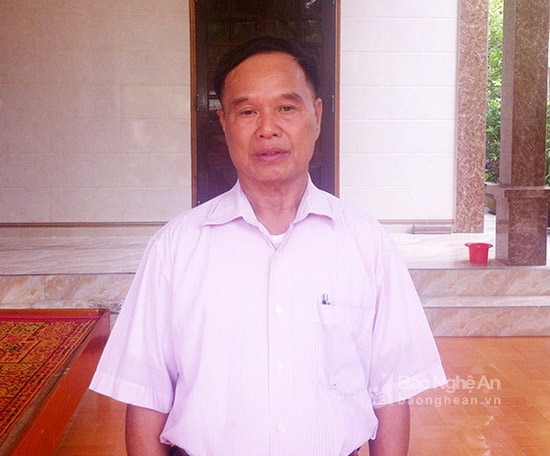 |
| Voter Vuong Dinh Suu. |
“Through following the 4th session of the 17th Provincial People's Council, I saw that the issues in all fields were fully discussed, in accordance with the wishes of the voters; questions were focused on the issues that voters were concerned about. For voters in mountainous districts like us, the concern is to solve the consumption of products and create conditions for applying scientific and technological advances to increase crop productivity, at the same time, there are many support programs for the mountainous people to develop and create the best conditions for the consumption of products for the people. Therefore, in addition to pointing out the problems, the People's Council delegates need to have specific solutions for each locality and start working immediately.
Regarding the issue of employment, the surplus of labor in mountainous districts is quite large, so it is necessary to create jobs for trained people such as university students, and to reasonably resolve the issue of staff reduction and employment for university students. Develop processing industries in mountainous areas to create local jobs such as developing bamboo and rattan weaving, processing agricultural products such as forest products.
At the same time, we also want to express our recommendation that in the issue of medical treatment for people in mountainous districts, we need to train doctors and nurses at district and commune levels to reduce the overload at provincial hospitals as well as the difficulty in people's travel for medical examination and treatment.
Voter Ho Huu Nam - Block 8, Cau Giat town, Quynh Luu: Prevent expired workers from running away and not returning home
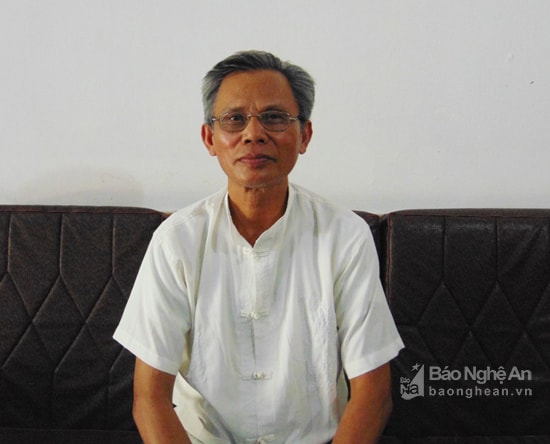 |
| Voter Ho Huu Nam. |
Through following the question and answer session at the 4th session of the Provincial People's Council, term XVII, I personally found that the questions raised by the delegates related to various areas of social life very close to the actual situation in the locality in the current period. At the question and answer session, I was particularly interested in the issue of food hygiene and safety, how to raise or grow to link the value chain to ensure safe food to consumers and this issue was also proposed by the Director of the Department of Agriculture and Rural Development. I hope that these solutions will be implemented to create trust for voters.
In addition, regarding the labor export situation, currently there are many Nghe An workers in Korea whose contracts have expired but have not returned home but have fled to work abroad. This situation will lead to insecurity for those working in the host country and affect the general labor export environment of the whole province, causing difficulties for domestic workers who wish to export labor abroad. We hope that the Department of Labor, War Invalids and Social Affairs will have specific measures to prevent this situation.
 |
| Voter Hoang Kim Dan. |
Voter Hoang Kim Dan - Hamlet 1, Thanh Thuy Commune, Thanh Chuong District: Hope that provincial leaders and sectors will take action
After following the opening session, the news reports on Nghe An Newspaper, Nghe An Television, especially the question and answer session at the 4th session of the Provincial People's Council, term XVII, 2016 - 2021 on the afternoon of July 12, I, as well as many voters in Thanh Thuy mountainous commune, Thanh Chuong district, were very happy with the achievements and results in the province's socio-economic development. In particular, the contents of our recommendations were reflected by the delegates at the session. I also strongly agree with the spirit of determination and questioning to the end on the contents considered hot such as "falling agricultural product prices, vocational training to create jobs, mineral exploitation management, electricity quality and many issues related to people's livelihood that were raised at the session, at the question and answer session.
I also really appreciate the conclusion of Mr. Nguyen Xuan Son - Chairman of the Provincial People's Council, from awareness to action, work is a process but through the attitude of accepting responsibility of the provincial leaders, leaders of the sectors and the promises made by those in charge, I believe that if we really take responsibility, we will gradually solve the problems.
Regarding the contents that the locality and I myself have proposed, I hope the government needs to pay attention to managing the quality of fertilizer varieties, promoting investment in factories and agricultural product purchasing and processing points to solve output for farmers; continue to have programs, provide loans for tea planting, forest planting, quickly resolve environmental fee payment regimes for forest growers; pay attention to improving the quality of electricity and domestic water sources and state management of consumer markets to ensure quality goods, improve the quality of life for farmers, especially in remote and border areas./.
PV-CTV Group

